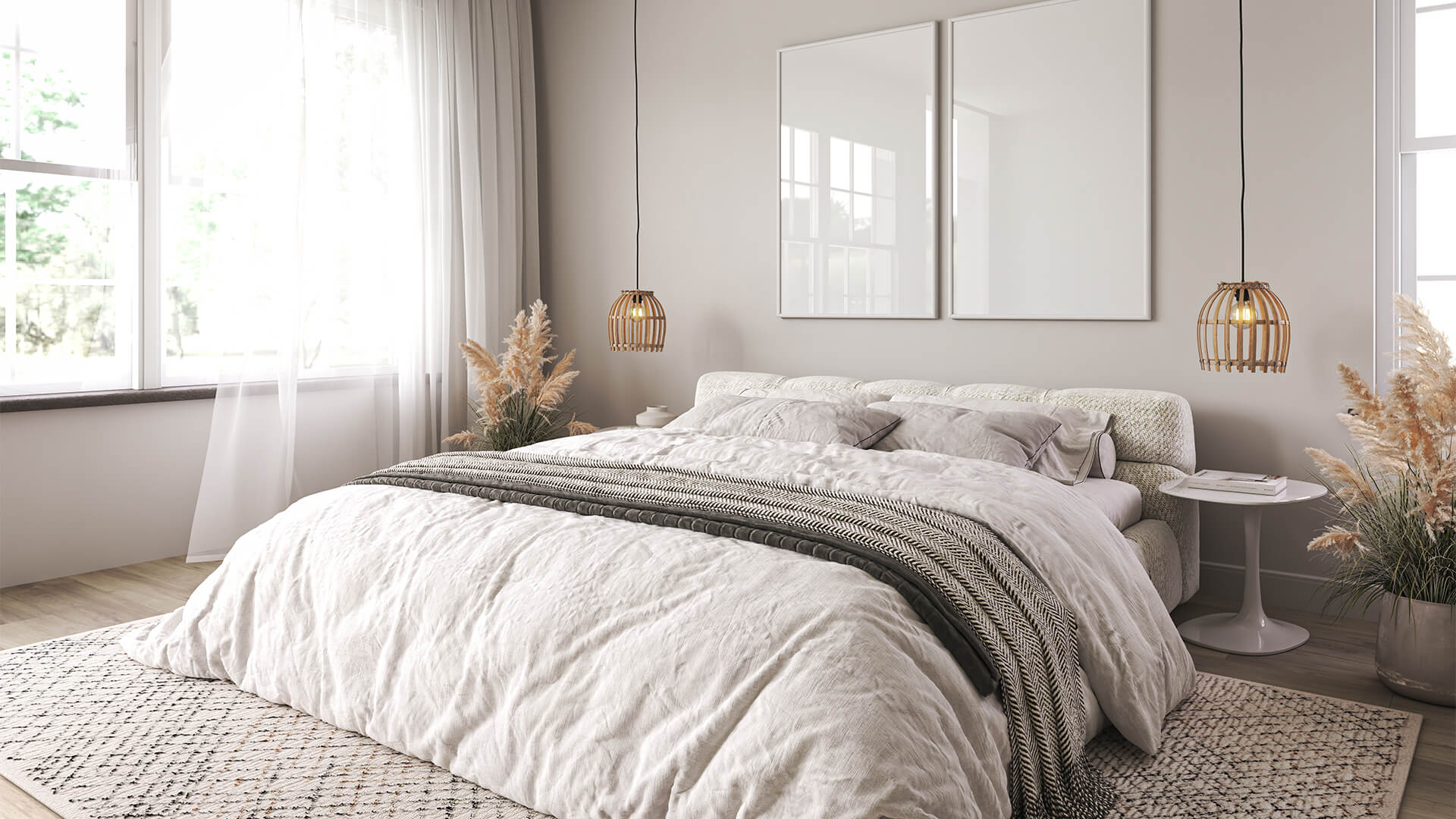When it comes to your home, one of the most important factors to consider is lighting. From setting the perfect mood to creating practical living spaces, lighting has the ability to change a room’s atmosphere at the click of a switch.
From your kitchen to your bedroom, every room has a different purpose, and it’s important that your interior design reflects this.
To help navigate the perfect lighting requirements for every room in the home, Marlena Kaminska, designer at Value Lights, has shared her expert advice:
Living Room
Your living room tends to be an area for both work and pleasure, being used throughout the day and into the evening. Lighting used here needs to be flexible to suit this – taking into consideration both style and practicality.
Marlena says: “Lighting plays a significant role in shaping the ambience of a room. As one of the more multi-functional rooms in your house, it’s important to incorporate a number of different lighting solutions into your living room to allow for a flexible and adaptable atmosphere.”
“The main ceiling light should provide enough brightness for any general work however you should also look to supplement this with subtler solutions, such as floor lamps and table lamps, to create a gentler ambiance for transitioning the room into the evening.”
“Warm-toned lighting works best in living rooms, creating a cosy and inviting space in which you can easily relax. Depending on your hobbies, it may also be a good idea to install task-specific lighting, such as a touch table lamp for reading or a floor lamp for watching TV.”
“When selecting the style and design of your lighting, be sure to take into consideration the size of your living room. While chandeliers make a gorgeous statement piece, in smaller rooms they can make the space feel overcrowded and unbalanced. Instead, look to bring in a similar opulence through smaller, sleek pendant lights.”
Dining Room
Dining rooms are often hubs of sociability – and whether this is hosting a dinner party with friends or doing homework with your kids, adequately lighting this room is crucial for optimising the space.
Marlena advises: “The focal point of any dining room is its table – and your lighting should be chosen to reflect this. Pendant lights or chandeliers make the perfect choice for this room, being both practical and visually appealing.”
“For a contemporary look, an industrial-inspired ceiling bar light works brilliantly when positioned parallel with your dining table. Or, if you’re looking for something more dramatic, a clustered pendant fixture makes an impressive statement, creating a defined focal point for your dining room.”
“If you find your dining table to be a hub for activities outside of dinner time, consider opting for a dimmer switch to enable versatility in light levels. This will allow you to easily switch from invigorating bright light during the day to atmospheric lighting for evenings.”
Kitchen
Lighting a kitchen presents a unique challenge to the other rooms in your home, requiring a greater focus on practicality.
Marlena says: “Lighting in your kitchen needs to be thoughtfully placed to ensure the worktops, sink and oven all receive proper illumination. The best way to achieve this is with focused lighting.”
“We suggest using a combination of carefully placed pendant lights and adjustable ceiling spotlights or recessed downlights to create a light and bright kitchen environment, no matter the time of day.”
“It’s important to consider the different ways in which you will use your space before you make any lighting choices. This will largely depend on the layout of your house, for example, an open plan kitchen will likely require tailored ‘zones’ of lighting to define the different spaces.”
Bedroom
Nailing a calming bedroom ambience all comes down to the lighting you choose. To ensure both comfort and practicality it’s important to carefully consider the style of lighting you pick and where you decide to position it.
Marlena advises, “Layering lighting is the key when it comes to your bedroom design, making the space both functional, relaxing and inviting.”
“Whilst untraditional, we suggest using your main ceiling fixture primarily as a decorative addition to your room. When selecting this light, prioritise design – a stand-out pendant light will bring charm and character to your bedroom.”
“The main source of illumination in the bedroom should come from soft, diffused light such as bedside table lamps or floor lamps. Primarily using these lights over your ceiling light is more soothing for the senses and will keep your bedroom feeling like a space of serenity and relaxation. The golden rule to follow when using these options is to always direct light towards the bed, not away from it.”
“Be sure to keep lighting temperature consistent throughout your room – a warm white tone will promote relaxation and ultimately sleep, making it the best choice for your bedroom. To avoid disrupting this peaceful ambience (and be kinder to bleary eyes), it’s a good idea to use dark coloured lampshades to further soften bright lighting.”
Bathroom
Whilst lighting may not be the first thing that comes to mind when you think of bathroom design, it is nevertheless an important element to consider.
Marlena says, “The bathroom is one of the only rooms in your house where the bulk of the light will come from your ceiling light. Spotlights are a great solution for many bathrooms, being modern in style and offering bright, clear directional light – perfect for your daily routine.”
“If you’re looking to elevate your bathroom lighting scheme and add a bit of luxury to your morning routine, why not look to incorporate an elegant bathroom chandelier.”
“Outside of style, it’s really important to make sure that any lighting in your bathroom can withstand the damp and humid conditions of the room. Look for lighting which has an IP rating of at least IP44.”
































